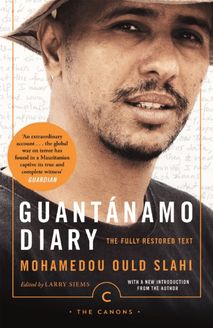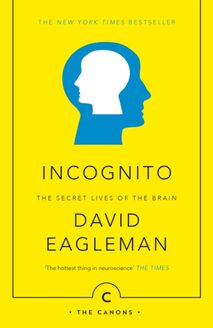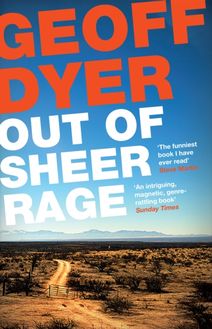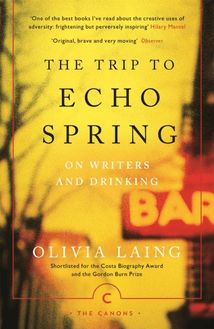-
 Univers
Univers
-
 Ebooks
Ebooks
-
 Livres audio
Livres audio
-
 Presse
Presse
-
 Podcasts
Podcasts
-
 BD
BD
-
 Documents
Documents
-
- Cours
- Révisions
- Ressources pédagogiques
- Sciences de l’éducation
- Manuels scolaires
- Langues
- Travaux de classe
- Annales de BEP
- Etudes supérieures
- Maternelle et primaire
- Fiches de lecture
- Orientation scolaire
- Méthodologie
- Corrigés de devoir
- Annales d’examens et concours
- Annales du bac
- Annales du brevet
- Rapports de stage
La lecture à portée de main
Vous pourrez modifier la taille du texte de cet ouvrage
Découvre YouScribe en t'inscrivant gratuitement
Je m'inscrisDécouvre YouScribe en t'inscrivant gratuitement
Je m'inscrisEn savoir plus
Vous pourrez modifier la taille du texte de cet ouvrage
En savoir plus

Description
Sujets
Informations
| Publié par | Canongate Books |
| Date de parution | 04 juillet 2019 |
| Nombre de lectures | 0 |
| EAN13 | 9781786897763 |
| Langue | English |
Informations légales : prix de location à la page 0,0400€. Cette information est donnée uniquement à titre indicatif conformément à la législation en vigueur.
Extrait
BORN ON THE FOURTH OF JULY
Ron Kovic served two tours of duty during the Vietnam War. He was paralysed from his chest down in combat in 1968 and has been in a wheelchair ever since. Kovic was the co-screenwriter of the 1989 Academy Award-winning film based on Born on the Fourth of July .
This Canons edition first published in Great Britain in 2019 by Canongate Books Ltd, 14 High Street, Edinburgh EH1 1TE
canongate.co.uk
First published in the USA by McGraw-Hill Book Company in 1976
This digital edition first published in 2019 by Canongate Books
Copyright © Ron Kovic, 1976 Introduction © Ron Kovic, 2005 Foreword © Bruce Springsteen, 2016
The moral right of the author has been asserted
British Library Cataloguing-in-Publication Data A catalogue record for this book is available on request from the British Library
ISBN 978 1 78689 745 9 eISBN 978 1 78689 776 3
Design by Akashic Books
CONTENTS
Foreword by Bruce Springsteen
Introduction 2005 by Ron Kovic
Born on the Fourth of July
Postscript: Letter to Ron Kovic’s parents from Lieutenant General L.W. Walt, U.S. Marine Corps, February 14, 1968
For my country and its people,
happy birthday
Ask not what your country can do for you—ask what you can do for your country.
—P RESIDENT J OHN F. K ENNEDY January 20, 1961
ACKNOWLEDGMENTS
First, I’d like to thank my friend and editor, Joyce Johnson, for the countless hours, including much of her own time, spent helping construct this book, giving it the necessary shape and form. The book could not have been completed without her help and exceptional skills and talents.
Thanks also to Roger Steffens—actor, poetry-man, and friend—who gave freely of his time, effort, and energy, retyping almost the entire manuscript up in Mendocino. I’ll remember his patience and understanding, his generosity and love, his faith in me and the book.
I’d also like to thank Mary and Sheila and my friend Waldo—a child at sixty—who gave me courage with his eyes and love with his wisdom.
And finally, thanks to Connie Panzarino—beautiful, strong, and brave woman—who believed in me and the book years before it had been written. She stood by me like no one else, listening through nights and days, caring and loving, understanding and encouraging, wiping the tears from my eyes. She was like a light shining from the darkness of what seemed to be an endless storm.
I am the living death the memorial day on wheels I am your yankee doodle dandy your john wayne come home your fourth of july firecracker exploding in the grave
FOREWORD by Bruce Springsteen
I N 1978 I was on a cross-country drive with a friend when we stopped at a small-town drugstore. There, in a book rack, I found Ron Kovic’s Born on the Fourth of July . I devoured it on the way to Los Angeles, caught in its unrelenting power, and was still under its spell when we pulled into the Sunset Marquis hotel, a rocker’s hideaway on Alta Loma Road.
Over the next few days I noticed a young man in a wheelchair sitting poolside. One afternoon he approached me and said, “Hi, I’m Ron Kovic. I wrote a book called Born on the Fourth of July .” I couldn’t believe it. I told him I’d just finished his book and felt it was one of the most powerful I’d ever read. We talked about the plight of Vietnam vets who’d returned stateside and he offered to take me to the Venice vet center.
A few days later we made the trip and I was introduced to many young men who were struggling with their own difficulties coming home. It was unforgettable and sparked my interest in veterans’ affairs that led to our concert in support of Vietnam veterans at the Memorial Sports Arena in Los Angeles in August 1981. Ron’s book, his passion, and his friendship have stayed with me to this day.
Here’s Born on the Fourth of July . Read it and rejoice. Read it and weep.
INTRODUCTION 2005 by Ron Kovic
I T WAS EXACTLY forty years ago this past September that I left my house in Massapequa, New York to join the United States Marine Corps and begin an extraordinary journey that was to lead me into a disastrous war which would change my life, and others of my generation, profoundly and forever. There are times in the lives of both individuals and nations when we cross certain thresholds where there is no going back, no return to the innocence we once knew; the change is utter and irreconcilable. We often sense these moments. I know I did that day. I can still remember leaving my house that morning, saying goodbye to my mother, my father driving me down to the Long Island Railroad station with only a few words being said between us—Dad was always that way—and then that long and contemplative ride into the city, being sworn in at Whitehall Street, holding my right hand up proudly with all the other young men, taking the oath of enlistment, and swearing our allegiance to the Constitution of the United States.
The fall of 1964, September 2, a lifetime ago. That last bright and beautiful morning when everything was to change forever, that last moment of lighthearted innocence and youth, of Massapequa and the backyard before the shock, the chaos, and the deluge. I had just turned eighteen that summer, and there are some old black-and-white photographs of me from those days. It’s amazing that I still have them, considering I have misplaced them many times over the years, thinking them lost forever, only to later find them in some unexpected place, like a deeply disturbing dream that I have been trying to repress. I remember seeing those photos on several occasions after I came home from Vietnam and each time having terrible nightmares that shook me badly. I couldn’t look at them, could not face that young man I had been before the war and my injury. I would always promise myself to never look at them again. My trauma was still very deep, and that beautiful boy, that body, had been destroyed, defiled, and savaged. My wounding in Vietnam both physically and emotionally haunted me, pursued me, and threatened to overwhelm me.
I wrote Born on the Fourth of July in the fall of 1974 in one month, three weeks, and two days, on a forty-two-dollar manual typewriter I had bought at Sears & Roebuck in Santa Monica, California. It was like an explosion, a dam bursting, everything flowed beautifully, just kept pouring out, almost effortlessly, passionately, desperately. I worked with an intensity and fury as if it was my last will and testament, and in many ways I felt it was. I continued to suffer from nightmares, constant anxiety attacks, severe heart palpitations, and a powerful, almost obsessive feeling that I would not live past my thirtieth birthday. I was living each day as if it were my last, as if everything had been compressed together by the war, and now every second counted.
I wrote all night long, seven days a week, single space, no paragraphs, front and back of the pages, pounding the keys so hard the tips of my fingers would hurt. I couldn’t stop writing, and I remember feeling more alive than I had ever felt. Convinced that I was destined to die young, I struggled to leave something of meaning behind, to rise above the darkness and despair.
I wanted people to understand. I wanted to share with them as nakedly and openly and intimately as possible what I had gone through, what I had endured. I wanted them to know what it really meant to be in a war—to be shot and wounded, to be fighting for my life on the intensive care ward—not the myth we had grown up believing. I wanted people to know about the hospitals and the enema room, about why I had become opposed to the war, why I had grown more and more committed to peace and nonviolence. I had been beaten by the police and arrested twelve times for protesting the war, and I had spent many nights in jail in my wheelchair. I had been called a Communist and a traitor, simply for trying to tell the truth about what had happened in that war, but I refused to be intimidated.
I loved the night and I would write for hours as if no time had passed at all. I was exhausted and my back ached, but none of that seemed to matter. I felt wonderful inside, tired but completely consumed by my writing. I would drink a couple cups of coffee and then with a new surge of energy work for another hour or so as the bright lights of the morning began to fill the room. I’d neatly stack all the pages next to the typewriter after holding them proudly in my hands, then go to my bedroom and transfer out of my wheelchair onto a mattress on the floor. I remember thinking to myself one morning that if I died in my sleep, someone would come into the apartment and find those pages next to the typewriter and know that I was not a victim, but someone who had been trying to move beyond his terrible tragedy and the terrible injustice of that war.
With the exception of that initial burst of writing and rare moment of stability in Santa Monica in the fall of 1974, I continued to be extremely restless back then, frantically moving from one place to the next, living on the edge, racing in cabs to the airport, flying from city to city on my monthly compensation check, suddenly showing up at friends’ houses in the middle of the night and sleeping on their couches—always carrying the manuscript with me and always frightened, desperately needing to escape the demons that were closing in on me.
Over the next year and a half I wrote several additional chapters of Born on the Fourth of July. Some of the stories were ones I had told my mother when I first came home from the hospital and would lay on our couch in the living room when I couldn’t sleep, which was often back then. Night after night I would repeat the story of how I was wounded that day in Vietnam, describing every single detail. My dear mother would sit patiently in her chair, listening to her son who had come home paralyzed from the war, trying her best to understand.
I attempted to write at my friends Skip and Ginny’s place on Mohegan Lake, in their lau
-
 Univers
Univers
-
 Ebooks
Ebooks
-
 Livres audio
Livres audio
-
 Presse
Presse
-
 Podcasts
Podcasts
-
 BD
BD
-
 Documents
Documents
-
Jeunesse
-
Littérature
-
Ressources professionnelles
-
Santé et bien-être
-
Savoirs
-
Education
-
Loisirs et hobbies
-
Art, musique et cinéma
-
Actualité et débat de société
-
Jeunesse
-
Littérature
-
Ressources professionnelles
-
Santé et bien-être
-
Savoirs
-
Education
-
Loisirs et hobbies
-
Art, musique et cinéma
-
Actualité et débat de société
-
Actualités
-
Lifestyle
-
Presse jeunesse
-
Presse professionnelle
-
Pratique
-
Presse sportive
-
Presse internationale
-
Culture & Médias
-
Action et Aventures
-
Science-fiction et Fantasy
-
Société
-
Jeunesse
-
Littérature
-
Ressources professionnelles
-
Santé et bien-être
-
Savoirs
-
Education
-
Loisirs et hobbies
-
Art, musique et cinéma
-
Actualité et débat de société
- Cours
- Révisions
- Ressources pédagogiques
- Sciences de l’éducation
- Manuels scolaires
- Langues
- Travaux de classe
- Annales de BEP
- Etudes supérieures
- Maternelle et primaire
- Fiches de lecture
- Orientation scolaire
- Méthodologie
- Corrigés de devoir
- Annales d’examens et concours
- Annales du bac
- Annales du brevet
- Rapports de stage




















